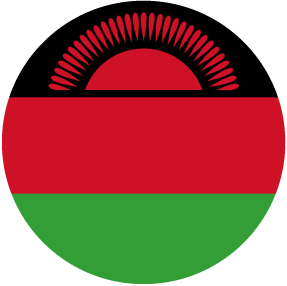Objectives
Refining Catalytic Grants and Investments - identifying, validating and mobilising towards the most vulnerable aspects of food and seed systems, driving transformative cross-cutting interventions
Programme coherence - ecosystem and stakeholder mapping, creation of new business lines, creation and refining of tools, models, and approaches for effective sector and country planning and implementation, interrogation and tracking of existing policies, digitisation
Complete the 2023-2027 Strategy
Positioning and Advocacy - convening and state intervention activities
Snapshot: Overview of the Year & Key Results Business Lines
Food Systems & Climate-resilient Agriculture
Inclusive Markets & Trade
Investments- Catalytic Grants and Blended Finance
Grants And Resource Mobilisation
Policy and State Capabilities
Food Systems
Climate-resilient Agriculture
Food Security and Climate Change are major challenges of our era, particularly in Africa where over 20% of the population faced hunger in 2020. The Horn of Africa, comprising eight countries and 160 million people, is notably affected. Almost half of its inhabitants live in areas vulnerable to acute food shortages due to factors like drought, conflict, environmental issues, and limited agricultural progress. Many of these countries depend on local, rain-fed agriculture, making them sensitive to climate variations. The 2021 UN Food Systems Summit highlighted the need for a comprehensive change in food systems, advocating for a sustainable and nature-positive approach that considers the entire food production and consumption cycle.
Sustainable Food Systems: The Remedy
Increasing food production in Africa without safeguards has led to environmental harm due to over-reliance on land expansion, endangering ecosystems. In 2022, discussions centered on sustainable food system solutions, emphasizing the protection of non-renewable resources and adoption of eco-friendly technologies. Additionally, policy alignment was recognized as vital for effective transformation, given the interconnectivity of food systems and the need for integrated, climate-resilient approaches.
From a “Green Revolution” to sustainable food systems
AGRA has evolved its focus towards strengthening Africa's food systems, impacted by multiple crises like climate change and global conflicts. As a result, "AGRA" has transitioned from an acronym to a standalone name, representing a call for sustainable food systems. This change emphasizes AGRA's commitment to long-term sustainability and deep partnerships.
Building sustainable, inclusive, and resilient food systems Africa Agriculture Status Report (AASR)
AGRA and partners produced the Africa Agriculture Status Report (AASR) to offer insights into megatrends aiding national recovery efforts. The 2022 AASR, themed "Accelerating African Food Systems Transformation," focuses on assisting countries in developing holistic food system transformation strategies. This report promotes multi-stakeholder collaboration and resource mobilization.
Seed Systems
AGRA's long-term investments have informed a strategy utilizing two key assets: the Center of Excellence for Seed Systems in Africa (CESSA) and the Seed Systems Assessment Tool (SeedSAT). These tools aim to comprehensively support governments and guide the private sector, facilitating transformative national seed system investment plans.
The Center of Excellence for Seed Systems in Africa (CESSA)
The Center of Excellence for Seed Systems in Africa (CESSA) began operations in 2022, supporting governments and partners in developing resilient seed systems. CESSA focuses on strengthening the seed value chain, including variety development, quality assurance, and policy frameworks. Their guidance aids countries in strategic seed planning, budget allocation, and directs investment towards critical components.
Seed Systems Assessment Tool (SeedSAT), the diagnostic tool for seed systems
AGRA's flagship program, SeedSAT, assesses the health of national seed systems and has been implemented in several African countries. It provides governments with detailed reports highlighting gaps and offers recommendations. SeedSAT aids in strategy formulation, plan design, and resource mobilization for effective planning.
Digital agriculture: Disruptive innovation in agricultural communications, information, and supply chains
The rise in mobile adoption and internet connectivity, accelerated by Covid-19, has boosted access to digital agricultural services for farmers. These innovations offer real-time advice at a fraction of traditional costs. AGRA aims to enhance rural communication infrastructure, promote local digital innovations, and ensure inclusivity, addressing digital poverty concerns.
Tracking Inclusive Agricultural Transformation (IAT)
The Inclusive Agricultural Transformation (IAT) tool evaluates agricultural transformation in Africa and was co-developed with the Economist Intelligence Unit (EIU). It identifies key transformation drivers and investment priorities. AGRA has piloted this tool in 15 African countries.
AGRA’s work in Regenerative Agriculture
AGRA, with the IKEA Foundation, promotes regenerative agriculture in Embu and Makueni counties to counter climate change effects and land degradation, aiming for food security and sustainable, market-led agricultural systems. This approach forms AGRA's central strategy, focusing on overall farm productivity to break rural poverty cycles.
Strengthening Resilience through Agroforestry
Rising temperatures and extreme climate events have led to resource depletion and land degradation. AGRA focuses on agroforestry in Burkina Faso to bolster resilience and enhance sustainability. This approach supports 210,000 farmers, improving incomes and nutrition for 5,000 rural women and youth.
Inclusive Markets and trade
AGRA works to boost regional trade opportunities for smallholder farmers in East and Southern Africa by creating structured trade channels and enhancing food processing platforms.
During 2022, the Market Shaping work stream prioritised:
Stakeholder consultations
Ugrading the East African rice value chain
Leveraging the food processing industry for inclusive markets
Championing the gender-focused VALUE4Her platform
Introducing finance support models in various African countries
Implementing environmental and social management in West Africa
Proof of Concept on Food Processing
The Bridge study in Zambia explored transforming low-margin crops into valuable products to benefit farmers. It examined the Zambian agro-processing sector, assessing challenges, opportunities, and economic trends. The study also pinpointed three investment areas to boost the industry's performance.
Financial and operational performance
---
- Support expanding revenue with market landscaping, channel development, and R&D investments.
- Enhance operations with tailored support like supply chain management.
- Assist clients with investment readiness, developing materials for investors
- Promote industry-level initiatives to attract funding and design appropriate bank products.
Employment generation
---
- Assist in creating and executing gender inclusion strategies for sustainable business growth.
- Advocate for internships and partnerships to integrate women in the agro-processing sector.
Inclusive sourcing and nutrition
---
- Design and implement inclusive sourcing from smallholder farmers to show business benefits.
- Enhance raw material sourcing for better capacity utilization.
- Introduce nutritious food products tailored for local markets and base-of-the-pyramid consumers.

Theory of Change + Theory of Action for Inclusive Markets & Trade
AGRA assessed delivery models and market institutions to identify opportunities for building inclusive and resilient agricultural markets across Africa. By examining various value chains, systemic barriers like poor quality standards, post-harvest losses, and limited finance access were identified. Priorities include partnering with large companies, SMEs, and farmer organizations, and emphasizing policy harmonization, advisory services, and informal trade support.
The refined theory of change, therefore, outlined three pillars of focus:
Pillar 1
Support and facilitate the deployment and scale of inclusive business models efficiently linking farmers to output markets
Pillar 2
Promote access to finance and other services, enhancing the competitiveness of agri-food market actors
Pillar 3
Foster the development of a predictable, inclusive, and enabling policy and business environment for trade.

Economy-Based Market Linkages Nascent Economies – weak private sector, strong government e.g., Burkina Faso, Ethiopia, Mali and Mozambique
Facilitate physical match-making platforms and institutionalize with a local owner (e.g., government or Agri-food Industry Organisations - AFIOs);
Support(digital) public-sector platforms and village-based advisors (VBAs) as last-mile aggregators; and link with seed sector coordination and planning units (Seeds for markets)
Partner with governments and regional trade associations to develop and maintain a regional/national food balance sheet and relevant market information systems.
Transitioning Economies – upcoming private sector e.g., Malawi, Rwanda, Tanzania, and Uganda
Facilitate targeted physical match-making platforms and institutionalise with a local owner, preferably a government or AFIO (e.g., for soy in Rwanda with a focus on regional trade)
Promote existing digital platforms
Link more smallholder farmers to existing promising digital platforms, AFIOs and inclusive businesses
Industrializing Economies – strong private sector e.g., Kenya, Nigeria, Ghana, and Zambia
Promote increased adoption of existing technologies by smallholder farmers through off-takers focused on seed, soil fertility, postharvest handling
Promote the use of digital solutions while continuing to facilitate targeted match-making platforms (e.g., cassava in Ghana) and institutionalize these with relevant market actors (e.g., AFIO).

Gender and Inclusion
Building on the gender and youth inclusivity progress made in 2021, AGRA’s goal for 2022 was to enhance our influence by refining the design of thematic programmes, and the tools and methodologies utilised for engagement.
Our work was organised into three primary bands:
Inclusivity in AGRA’s Workstreams
- Address systemic barriers for gender, youth, and disadvantaged smallholder farmers.
- Seed Systems incorporates gender indicators to identify access gaps for female farmers.
- Policy and State Capability team develops gender-equal agricultural policy assessment.
- Sustainable Farming aids female village-based advisors with a gender strategy.
Women in Entrepreneurship and Markets
- VALUE4Her platform growth: from 2,072 members in 2021 to 3,009 in 2022.
- Plans to transform VALUE4Her: match-making, growth of women's businesses, increase investment, achieve platform sustainability, and expand to seven countries.
- Women to Women Supply Chain Programme (WOW) launched in 2021: supports women in supply chains at various levels.
- ARISE's refined training focuses on investment processes and offers a management toolkit.
- VALUE4Her Women Agri-preneurs of the Year Awards recognized outstanding female agripreneurs at a summit in Rwanda.
AGRA's Gender-Responsive Programming
- Conducts deep analysis on youth employment and empowerment.
- Examines government policies and strategies to develop a comprehensive strategy from a continental perspective.
Investments - Catalytic Grants and Blended Finance
During the review, we analyzed our past programs to guide organizational realignment, evaluated our 15-year financing impact on market access, and assessed the sustainability of our systems without AGRA's oversight.
Our review revealed that AGRA's investments addressed persistent financial barriers, including financiers' hesitancy to boost agricultural portfolios and government policies that adversely affect agricultural finance. Notable findings included;
An Africa-wide system to measure the performance of SMEs and formal-based organisations that AGRA invested in helped provide more clarity on their progress over time and the impact of external financing on their processes.
The championing of government subsidies towards inputs, fertilisers and equipment was also critical in helping increase farmers’ ability to afford them.

Blended Finance
Unlocking, Catalysing and De-risking Agricultural Finance
To bolster our agricultural finance systems, we adopted a blended finance strategy encompassing catalytic investments, digital methods, and alternative lending. In 2022, our priorities were:
- Collaborating with partners to boost capital supply, increase finance deals, and initiate blended financial tools.
- Motivating both public and private sectors to promote knowledge-sharing, digital innovation, and focus on youth and gender-driven entrepreneurship.
- Employing public funds for risk mitigation by co-creating financial models that distribute investment risks.
By focusing on sustainability and scalability, we made strategic investments in the ecosystem
To bolster our agricultural finance systems, we adopted a blended finance strategy encompassing catalytic investments, digital methods, and alternative lending. In 2022, our priorities were:
- Financial Inclusion for Smallholder Farmers Program (FISFAP) for enhancing financial inclusion in Ghana, Kenya, and Tanzania using digital solutions.
- Programs like PROFIT and GIRSAL aimed at reducing risks in agricultural lending in Kenya and Ghana.
- Agri-Business Capital Fund (ABC Fund) for Agri SMEs and rural financial institutions in Africa.
- Initiatives to innovate new lending models and tools for Agri SMEs.
- Investments in blended finance entities including AFC, MAIIC, BDF, UDB, BADF, GIRSAL, and GAPI.
Economy Based Curation
AGRA utilizes tools to guide government agricultural investments, tailoring interventions based on economic capacity:
- For Nascent Economies (like Mali, Burkina Faso, Ethiopia, and Mozambique) with a dominant government role, AGRA focuses on enhancing the investment environment and promoting inclusive sourcing model legislations.
- In Transitioning Economies (such as Malawi, Rwanda, Tanzania, and Uganda) with emerging private sectors, AGRA offers technical support for finance and Business Development Service (BDS) growth, provides affordable capital solutions, and works on price stabilization and local sourcing incentives.
- For Industrializing Economies (including Kenya, Nigeria, Ghana, and Zambia) with robust private sectors, AGRA promotes replication of successful models, connects promising SMEs to agri-friendly financial institutions, and collaborates on legislation encouraging local, inclusive business and finance strategies.
Financial Bridge interventions across business lines
Seed systems
Goal: Enhance access to finance for seed companies
Interventions
- Creating demand for preferred seed varieties and enhancing seed company finance-ability.
- Strengthening implementing institutions to support seed companies.
- Adopting a standard performance measurement tool for seed firms.
- Leveraging every USD 1 spent by AGRA to activate fivefold in private investments.
- Implementing True Cost Accounting to assess the comprehensive value and impacts of food production.
- Offering 'true value' investment opportunities in food enterprises for various stakeholders.
Sustainable Farming
Goal: Enhance access to finance for inputs
Interventions
- Partner with Financial Service Providers (FSPs) to scale agro dealer and village-based advisor (VBA) finance models in an inclusive manner
- Develop business cases for financial products eligible for ‘Green and Climate Finance.’ Climate finance seeks to support mitigation and adaptation actions that address climate change whereas Green finance mobilises towards sustainable development priorities
- Support agricultural insurance actors (Pula and ACRE) to de-risk input finance
Inclusive Markets & Trade
Goal: Enhance access to finance for SMEs
Interventions
- Improve markets (through innovations) for financial and non-financial service delivery to SMEs
- Partner with FSPs to scale SME finance models and FSPs’ access to de-risking facilities
- Partner with Business Development Service (BDS’s) providers to improve their capacity to enhance bankability of SMEs
Policy and State Capacity
Goal: Enhance Agricultural finance
Interventions
- Promote blended finance to enhance the effective use of public funds in advancing agricultural finance
- Support policy reforms to address regulatory barriers in agricultural finance
- Promote Kampala principles to improve coordination of public support for agricultural finance

Grants and Resource Mobilisation
During the review period, AGRA successfully awarded investments, consultancies, and sub-awards totaling approximately USD 33.3 million. The majority of new grant commitments were absorbed by Programme Innovation and Delivery (86%). Throughout the year, AGRA disbursed USD 15 million, with regional grants and country grants accounting for 30% and 31% respectively. The grant process was optimized, improving turnaround time from 60.2 days to 41 days. Additionally, AGRA allocated USD 2.5 million to bridge initiatives supporting new business lines and enhancing existing investments, with a strong focus on strengthening last-mile delivery systems and carbon financing. These efforts align with AGRA's strategy for 2023-2027.
Strategic Outlook and Way Forward
AGRA's adjustments this year emphasize its commitment to its core mission: addressing African hunger and poverty through agriculture. Adapting to an evolving environment, AGRA is transitioning towards sustainable food systems. The focus is expanding beyond productivity to incorporate nutrition-sensitive strategies, leveraging existing partnerships to enhance seed diversity and nutrition options.
Climate change threatens the food systems we rely on, rendering the current approach insufficient. With anticipated temperature rises leading to significant crop yield reductions by 2050, our strategies now incorporate drought-resistant crops, eco-friendly farming methods, and carbon financing.
Emphasizing inclusivity is central to our upcoming strategy. We're dedicating efforts towards women, youth, and the disabled, acknowledging their potential transformative contributions. Recognizing their adoption of innovative agricultural methods, we see these groups as essential agents of change, with invaluable indigenous and local agricultural knowledge.
AGRA has evolved over the year, refining its approach to address hunger and poverty in Africa. By shifting towards sustainable food systems and embracing nutrition-sensitive interventions, we're aiming for a holistic model that integrates people, livelihoods, and the environment, while also addressing the pressing challenges of climate change.
Given the looming threats of climate change, such as the potential 10% drop in crop yields by 2050, our strategies are pivoting towards drought-resistant crops, regenerative farming, and inclusive policies. Emphasizing inclusivity, we're focusing on empowering marginalized groups like women, youth, and the disabled, recognizing their potential to bring transformative change to the sector.
In our future operations, we'll be tailoring our actions to individual country needs and fostering collaborations with various stakeholders. Our upcoming strategy is results-driven, with the Monitoring Evaluation and Learning (MEL) system ensuring we remain accountable, measure our impact, and effectively guide governments in agricultural transformation.
Flagships, Initiatives/support To Ministries of Agriculture
Flagship programs serve as pivotal mechanisms for attracting agricultural and food investments. These programs must be tailored to specific developmental contexts, mirroring national necessities and fostering synchronized multi-tiered actions and partnerships.
The reviewed period emphasized grassroots customization, leveraging state capability indicators and broadening flagship mobilization methods. This was complemented by an accelerated expansion in the sector, offering specialized support across agricultural systems, and utilizing a remote delivery model to assist governments.
Diagnostic - Improving Baselines:
---
- Investigated the status of eight focus countries using the GRAT tool developed in partnership with the Tony Blair Institute.
- Produced eight country-specific reports and one synthesized report.
Advisory - Convening and Coordination
---
- AGRA, as a primary sector convener, emphasized the formation and scaling of flagship mobilization mechanisms, like steering committees, technical groups, and innovation platforms for specific crops.
- Highlighted example: Tanzania's Technical Working Group on Agro-industrialization is now a thematic group under the ASDP II, emphasizing its value addition and commercial component.
- AGRA fostered sector-wide coordination through the Agriculture Sector Working Group and the initiatives of PIATA partners.
- For the AGRF Deal Room, multi-institutional teams were convened in each country, promoting enhanced collaboration and knowledge exchange among stakeholders.
Development-New Flagships
AGRA units collaboratively developed Food Systems Strategies for Ghana, Rwanda, and Malawi, attracting private sector interest. They established coordination frameworks in four countries and supported Ethiopia's rice and oil seed flagship programs, integrating new areas in AGRA's strategy.

Nigeria – BAGS flagship off to a rapid start
In May 2022, Kaduna State, led by Governor Nasir Ahmad El-Rufai, approved and funded the BAGS program aimed at boosting smallholder farmer productivity and market access. The program, supported by over USD 20 Million in funding, integrates digital platforms and focuses on value chain improvements for crops like maize, soya, and ginger.

Malawi – Women and youth flagship creates new business linkages and enhances technology uptake
Malawi's 10-year program aims to empower women and youth in agriculture, enhancing value chains and creating business linkages, with significant governmental and private sector backing, including digital hubs for youth.

Tanzania – TAIDF expected to leverage USD2.7 billion in agro-industrial investments
Tanzania's Agro-industrialization Flagship aims for economic transformation, targeting 32.2M people by 2025 with a $320M seed investment, expected to leverage $2.67B in private sector funding and create 1M jobs.

Burkina Faso – Balanced meals for school children
AGRA backs Burkina Faso's initiative to provide balanced meals for schoolchildren, integrating local production to boost producer income and enhance school canteen quality. The collaboration has seen growth and improved governance in 2022.

Ethiopia- Support to the National Rice Flagship Program
AGRA aided the National Rice Flagship Program by refining its implementation and conducting feasibility studies on local rice production and its potential to replace imports.

Ghana - Planting for Export and Rural Development (PERD-TCDA)
In Ghana, AGRA and IFC partnered to digitise TCDA's value chain and develop a strategic plan, enhancing TCDA's operational effectiveness and competitiveness analysis.
Support-Flagship implementation:
AGRA advanced flagship support through evidence-based meetings with key ministers and collaborated with global organizations for sector planning. MAFAP, BFAP, and others provided technical insights for flagship projects in Ethiopia and Nigeria.
Support - Business Development Services for Agri-SMEs
AGRA collaborated with TAPBDS to support Tanzanian agrifood SMEs upon PO-RALG's request. The government set a framework to enhance the local government loan fund's impact. AGRA developed suitable financial products, streamlined beneficiary selection, and boosted SME business capacities.
Tracking and Accountability
AGRA implemented tools and initiatives to bolster non-state actors in holding governments accountable, including a web tool for tracking investments and a database for sunflower oil companies. Technical support was provided to Tanzania's Ministry of Agriculture, emphasizing monitoring and evaluation. Furthermore, a stakeholder mapping exercise revealed the importance of enhancing AGRA's visibility, promoting knowledge sharing, and formulating a comprehensive advocacy strategy.
Enhancement - Government’s delivery capabilities
The State Capability Unit (SCU) aided in the Institutional Capacity Strengthening Plan (ISCPs) in Tanzania and designed plans in four other countries through consultative processes. Technical assistance was provided for contextual tool development and review in these countries. AGRA utilized insights from ICSPs for country assessments and strategy development.
Enforcement-Augmenting Delivery Capacity
AGRA's Centre for African Leaders in Agriculture (CALA) advanced its leadership program for 80 leaders across eight countries, offering coaching, virtual learning labs, and case studies. Sixteen Action Learning Projects were launched, with ten receiving seed funding, and CALA hosted a virtual Leadership Forum on environmental sustainability. Feedback and surveys indicate the program equips leaders with practical tools, enhances collaboration, and positively impacts strategic initiatives across sectors.
The African Agricultural Transformation Initiative (AATI)
In 2022, AGRA partnered with entities like IFAD, BMGF, and McKinsey to form the Agricultural Transformation Agency (ATA), developing initiatives in Ghana and Senegal. Together, they refined proposals, devised metrics aligned with the AATI Theory of Change, and reviewed past engagements. The AATI’s Executive Director visited both countries, gearing up for project launches in 2023.

